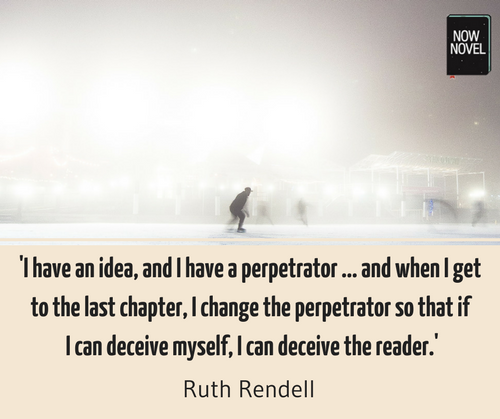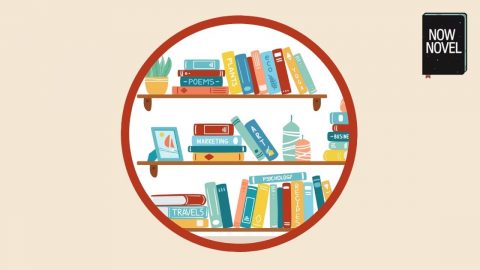Finding good story ideas in your genre is easier when you read broadly and know your genre well. Read tips for finding and developing an idea that will appeal to other fans of your genre:
- Read widely and know your market
- Brainstorm the 5 W’s
- Think about the kinds of story ideas that make bestsellers
- Add elements you wish your genre featured more
- Free-write options and choose the best story idea
Let’s explore these ideas:
1. Read widely and know your market
Good story ideas have many hallmarks. They’re intriguing; they suggest the following story will solve great mysteries or develop exhilarating character journeys. They enable authors to extract a lot of story from a single, small kernel.
They’re also marketable, and that’s key to finding an agent or publisher and building a reader base within your genre.
Stephen King’s advice to read widely in On Writing (1999) is something many authors echo. Besides learning the mechanics of a great sentence, scene or story arc from multiple angles, reading widely within your genre helps you learn how authors take ideas – even bad or hackneyed ones – and spin them into storytelling gold.
Read books in your genre – not just the newest big successes (although this is useful for seeing what audiences are responding to now) – but older classics too.
The broader your knowledge of your genre, its history and current trends, the more colourful your palette will be for creating your own fictional world.
2. Brainstorm the 5 W’s
Regardless of genre, good story ideas all have the 5 W’s in common. They have an interesting ‘who’, ‘what’, ‘why’, ‘where’ and ‘when’.
The importance of these aspects of your story will naturally differ depending on your genre. In fantasy and science-fiction novels that speculate about other worlds, for example, the ‘where’ (in setting and world-building) is particularly important.
When you brainstorm the 5 W’s for your story, think in terms of the exciting possibilities your genre allows. [You can brainstorm using Now Novel’s Idea Finder to build an idea you can develop into a gripping story.]
For example, your genre might supply interesting character or setting types:
- Characters: How can you make the genre specific ‘who’ of your story interesting? Perhaps the suspect in your murder mystery is a high-profile society member, for example. Think about the consequences of a detail like this
- Settings: A thriller where a detective chases a killer across multiple continents, for example, lets you develop varied settings and challenges (language barriers, for example, or travel setbacks). In a thriller, you can mine these place-related setbacks for suspense, tension and conflict.
Continue in this vein for the ‘what’, ‘why’ and ‘when’. Flesh out your story idea with genre-based details that boost your action, intrigue and character development.

3. Think about the types of story ideas that make bestsellers
When looking for riveting reads, readers often have little more than story ideas on book blurbs (or in product descriptions) to make their decisions.
Reading the blurbs of bestsellers is a useful way to learn how to come up with strong ideas and how to present them with a good hook.
Look at these examples of intriguing story ideas from bestsellers published in 2017:
Women who fall asleep become shrouded in mysterious cocoons while the men battle one
another.
A search for stolen rare manuscripts leads to a Florida island.
The first is the blurb for Stephen King and his son Owen’s Sleeping Beauties (2017). The second is for John Grisham’s Camino Island (2017). Although different genres (paranormal horror/suspense and crime thriller), they share common elements:
- Both ideas create a strong unknown or mystery that could be revealed (the origin or reason for the cocoons; the fate and significance of the manuscripts)
- The story ideas also suggest possible tensions (the dangers of hunting stolen items; the unexplained fighting between cocoon-free men)
- Both give an interesting ‘where’ for the story (in Grisham’s case, a water-locked island; in King’s, a supernaturally gender-segregated place)
If you have some notion of your story idea already, think how you can imply later reveals and possible tensions already in your story’s synopsis.

4. Add elements you wish your genre featured more
When brainstorming story ideas in your genre, remember to try writing from a place of ‘no’. What this means is thinking of common elements that irritate you in your genre and creating an idea from that.
Perhaps it’s that the love interests in your genre often feel too wholesome or ‘good’, for example. You could imagine a novel like 50 Shades of Grey (putting aside the quality of the actual writing) resulting from a ‘no’ of this nature.
Finding the trite ideas in your genre can even be a source of comedy. Douglas Adams’ The Hitchhiker’s Guide to the Galaxy (1979) spoofs science fiction tropes. For example, instead of being super-intelligent aliens, his Vogons write poetry so bad it causes those who are forced to listen to die of internal hemorrhages.
5. Free-write options and choose the best story idea
Once you have brainstormed the beginning elements of your story, it’s time to write a complete summary of your idea.
Write a few versions, without turning on your internal editor. Just spew words on the page for now. When you’re finished, decide which story idea creates the biggest itch to unpack and explore it. Commit to the idea and save other options that you also like for future projects.
Join Now Novel to brainstorm your best story ideas and get constructive feedback from your writing community.


4 replies on “Finding good story ideas in your genre”
You hear this all the time in the form of ‘write the story you’d want to read’ but I’ve never had clear instructions on how to do that. Thanks for this post, it’s really helpful!
Hi Laurel – thank you! I’m glad you found the ideas here clear. Good luck with your current work-in-progress.
Thanks, thats some top quality advice!
Thank you, Maurice, thanks for reading :).